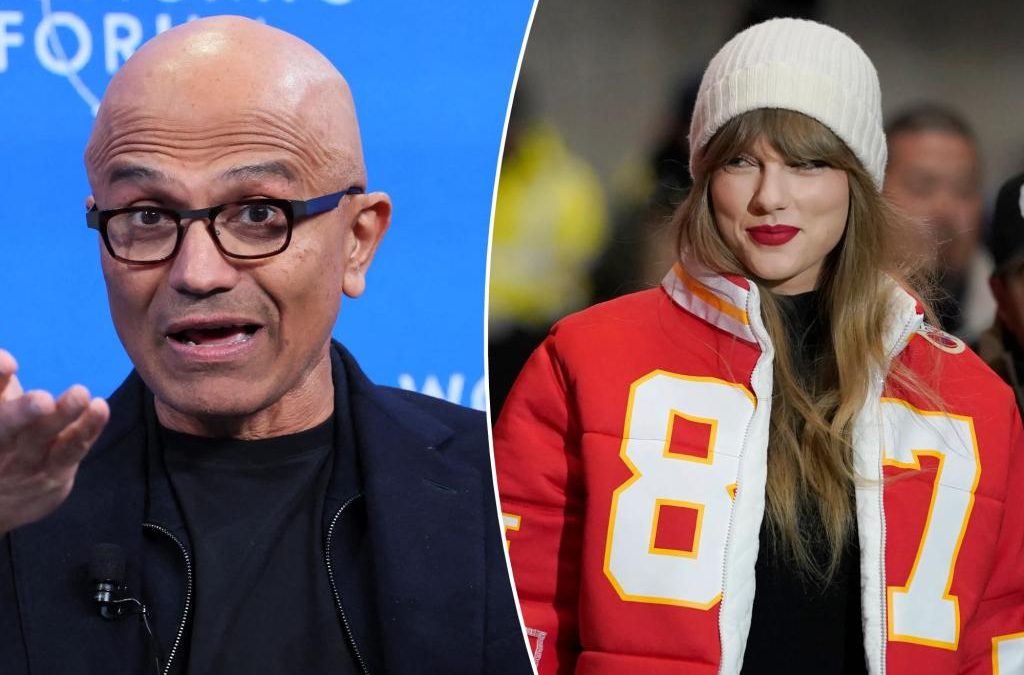Microsoft CEO Satya Nadella said tech companies need to “move fast” to crack down on the misuse of artificial intelligence after sexually explicit AI-generated images of Taylor Swift spread rapidly on social media last week.
Nadella, whose company is a key investor in ChatGPT creator OpenAI, described the spread of fake pornographic images of the pop star as “alarming and terrible.”
The Microsoft boss also called for the implementation of “guardrails” to ensure AI isn’t used for nefarious purposes.
“We have to act. And quite frankly all of us in the tech platform, irrespective of what your standing on any particular issue is. I think we all benefit when the online world is a safe world,” Nadella said, according to a transcript ahead of the NBC Nightly News interview, which will air Tuesday.
“And so I don’t think anyone would want an online world that is completely not safe for, both for content creators and content consumers,” Nadella added. “So therefore I think it behooves us to move fast on this.”
Swift’s massive fan base led an uproar as the AI-generated images spread on X and other platforms last week.
The controversy has sparked renewed calls among lawmakers for the implementation of federal laws governing the use of AI “deepfake” technology.
Over the weekend, Elon Musk’s social media platform took the extraordinary step of blocking any searches involving Swift’s name from yielding results — even those that were harmless.
X executive Joe Benarroch described the move as a “temporary action and done with an abundance of caution as we prioritize safety on this issue.”
The ban remained in effect Monday.
Elsewhere, White House Press Secretary Karine Jean-Pierre described the deepfakes trend as “very alarming” and said the Biden administration was “going to do what we can to deal with this issue.”
The controversy could mean another headache for Microsoft and other AI leaders who are already facing mounting legal, legislative and regulatory scrutiny over the burgeoning technology.
Last month, the New York Times sued OpenAI and Microsoft for copyright infringement after they used the publication’s articles to train AI models.
Swift is reportedly “furious” about the AI-generated images and her team is weighing possible legal action over the issue, a source told the Daily Mail.
The rise of AI deepfakes could emerge as a key theme later this week when Meta CEO Mark Zuckerberg, TikTok CEO Shou Chew and other prominent tech bosses testify before a Senate panel.
Source




